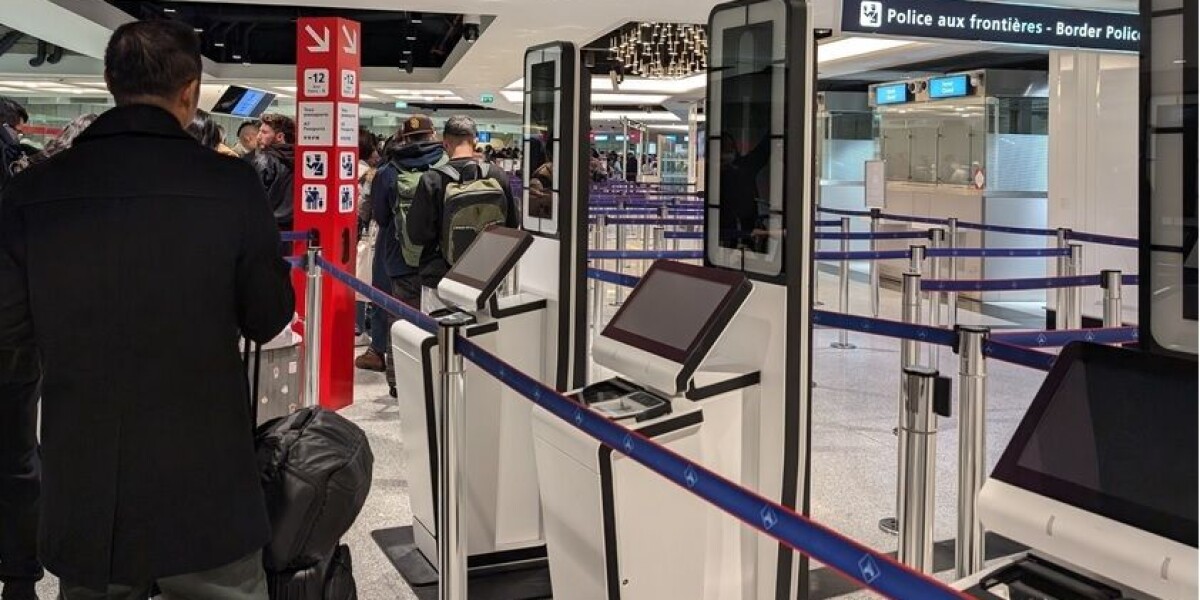Play all audios:
A 'phased' launch of the EU's new digital borders system in October moved a step further yesterday (April 23) as MEPs approved the plan - however they reiterated the urgency
of France and other countries declaring their "readiness". Both the European Council and Parliament now agree that the new digital borders scheme will launch in a
'progressive' (phased) way over six months. Joint negotiations are now set to start on May 12 as they seek to agree on the wording of a new law setting on the rules. It comes as
updates are being made to the Parafe passport e-gates in large airports and Eurostar Eurotunnel terminals. The aim is that non-EU visitors from many countries, including the US and UK,
will be able to use these on entry and exit – apart from their first entry/exit, when their database entry is created. Assita Kanko (Belgium), in charge of the EES dossier at the European
Parliament, told The Connexion: “The start in October will depend more on the ‘declaration of readiness’ of the three member states that are late than the parliament, as the general tendency
is positive on our side.” This progressive start proposal, which originated from the European Commission, means the system is now expected to start at some border points and not others
and/or with only some visitors and not others checked. The number of points/visitors will, it is planned, increase over six months to full capacity. However, in a version of the progressive
start law approved yesterday by the parliament's committee for home affairs, MEPs propose tweaks including that countries that feel ready should be able to deploy the system fully from
day one, if they wish. They also stress that neither the start nor end of the six-month period should be in high tourist season, ie. June to August or December to February. If EES launches
in October, as hoped, this would comply. Commenting after the adoption of the text by the parliament committee, Ms Kanko said: "After eight years of stagnation [since an original EU
regulation was adopted about how EES would work] and increasing terrorist threats, it is time to act decisively." Referring to France, Germany and the Netherlands, which have yet to
declare they are 'ready' for EES, she added: "We will no longer let the slowest pupils hold the whole class back. The safety of Europeans can no longer be postponed. "So
far, the cooperation has been constructive. If everything goes to plan we can roll out the new rules by October. The three member states need to finish their homework, but we are keeping up
the pressure." Her assistant, Joris Walraet, said the parliament was asking for only minor compromises” that did not alter the substance of what had been proposed. FACIAL RECOGNITION
SET TO REPLACE PASSPORTS FOR BRITONS TRAVELLING FROM FRANCE “At this stage, the most important request from the parliament is that the three remaining member states submit their official
declarations of readiness. “This is a key condition to ensure the timely and coordinated rollout of the EES.” We asked the Interior Ministry if there is news of France’s ‘readiness’ but did
not receive a reply. It was this issue, plus a lack of confidence over the ‘resilience’ of the central IT systems, that led to the last planned launch date, November 10, 2024, being missed.
EES APP ROLLOUT AND E-GATE IMPROVEMENTS Uncertainty still remains over France’s adoption of the ‘Travel to Europe’ app that EU borders agency Frontex has developed to help visitors complete
some required information before they arrive. Countries are free to use it or not, and may adapt it for their use. Meanwhile, airports body the Union des Aéroports Français (UAF) reports
working with the government to ease queuing for foreign residents in France. The adjustments to the Parafe gates for non-EU visitors, in combination with preregistration kiosks, should help
these travellers avoid queuing to see a border guard. However, there is a risk that the same nationals who live in France will not be able to use them, as they now can, if there is no way
for the systems to recognise them as residents, not requiring registration in the EES. Read more: New EES border controls - will foreign residents of France be able to use e-gates? A UAF
legal expert said: “French authorities are carrying out legal and technical work with a view to making this [recognition of residents’ status by the Parafes] possible in due course. “There
remain, however, obstacles to deal with – especially with regards to Cnil [data protection authority] and the Conseil d’état [top administrative authority] relating to regulatory aspects.
“That makes it impossible to give a calendar for when it will be put in place.” He added: “French airports have the same objective of maintaining this simplified border route via the Parafes
for third-country [non-EU] citizens who are long-term residents, and in recent months we have had regular exchanges with the authorities to optimise all possible passenger routes, depending
on the type of traveller.”

